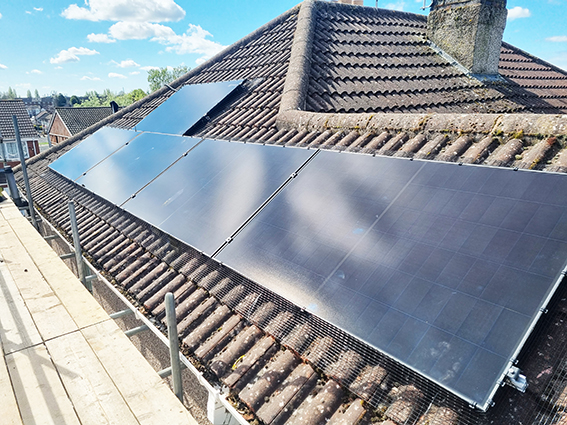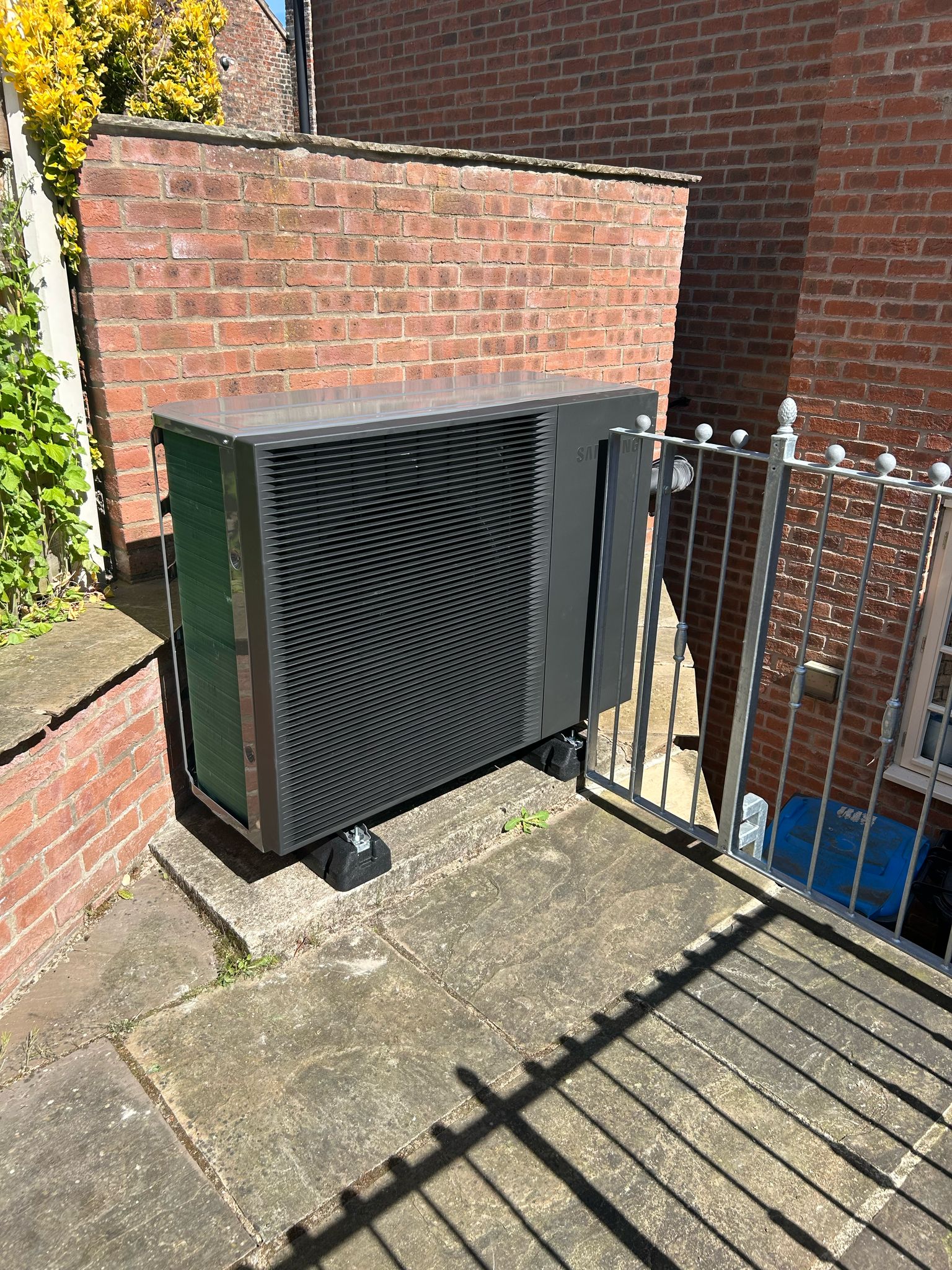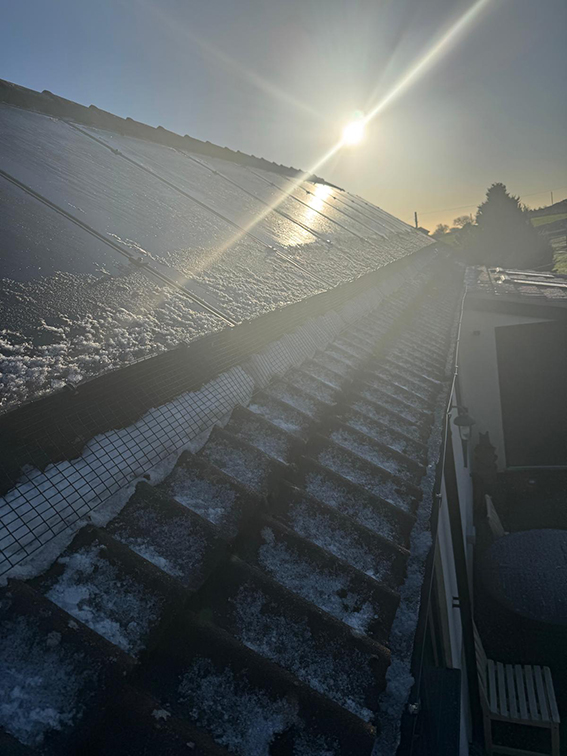
Does Solar Energy save you money?
Does Solar Energy save you money?
If we believe search engines, this is one of the most asked questions on the internet – and why not, as the initial investment can be a fair whack.
The honest answer is ‘Solar energy certainly saves you money, but your system and use will decide how much’
Energy costs aren’t getting any lower, so 1000s of people a year are making the switch to generating their own energy using solar.
You can tell solar is getting more popular as large corporations like Amazon, Octopus and British Gas are all trying to get in on the action.
When utility companies are offering to install solar for you, you know you’re on to something.
Plus, the price of solar products has decreased 83% in the last 10 years.
We like to think of solar as a home improvement, rather like a new kitchen or bathroom, that gives you years of service – as well as saving you money on your bills.
In this blog we are going to discuss the savings, ROI and extra cash you can earn when you install a solar energy system.
What is in a Solar Energy System?
As brilliant as solar panels are, they won’t power your house on their own.
It’s a little know fact that there are lots of different kinds of electricity – from the obvious AC and DC currents to the difference between high voltage DC and low voltage DC.
Because of this, you need something to convert the energy you generate.
Inverter
All solar energy systems will have an inverter.
In standard systems, the inverter will convert the DC electricity generated by your panels into AC electric you can use in your home.
Hybrid inverters will also convert AC to DC for your batteries and DC to different DC for charging your battery from your panels.
The Invert will also, generally, be the brains of your system – controlling where your energy goes and how it used.
Hybrid inverters cost start at around £1500 and have a 10 – 15 year warranty.
Battery
While you don’t NEED a battery in system, we think it’s a must if you want to fully utilise your solar energy system
The average system will produce way more power than you need on a normal spring day but, for most of us, that’s when we are at work.
So, rather than sell the energy back to the grid, you will save more money by storing the energy and using later in that day.
Batteries are available in so many different sizes and brands that’s it’s almost impossible to put an actual general price on them.
As part of an installation, they can range between £1300 and £7500.
Optimisers
Optimisers are usually used if there is a problem with one of your panels.
This could be a technical fault, shading or any number of other things that could effect the performance of your stem.
Unfortunately, if you have an under-performing panel in your array, it can bring down the yield of the whole system,
Optimisers negate this by pulling the faulty/shaded panel up to the same yield as the rest of your system.
They can cost around £200 each and will last for a good couple of decades.
How much will a Solar Energy System cost in total?
We know it sounds evasive, but there isn’t a price that would cover every kind of installation.
For instance, if you are putting panels on 3 parts of the roof, you may need 3 sets of scaffolding – which would really bump the price up.
The cabling may need burying, again that’s an extra cost.
Bearing these things in mind, we came up with these number.
| Panels | Battery | Cost |
|---|---|---|
| 6 x Panels | 1 x Battery | From £4869 |
| 12 x Panels | 1 x Battery | From £5799 |
| 16 x Panels | 2 x Battery | From £8495 |
These are very much guesstimates, but they’ll give you some idea.
How many panels, inverters and batteries will you need?
Well … and we know this is getting repetitive … that depends!
Usually, you would only have one inverter in your solar system, as they can handle the number of panels usually fitted to a domestic system.
But, the number of panels and the number of batteries you need really is down to space, money and your energy use.
When do solar panels produce power?
During the day is a good place to start!
But the unhelpful assumption is that panels need direct sunlight to work – they don’t.
We all heard about photons in High School physics classes, but it’s not a word we often see day-to-day.
A ‘photon’ is a light particle, and the sun bombards the earth with them 24 hours a day.
These are the things that make the silicon in the panels ‘jiggle’ to produce electricity.
The more direct the sunlight, the stronger the effect of the photons, but panels will run very well on weaker photons that may have been through the clouds … even when it’s raining!
The sun has a more direct path to the surface of the earth in the summertime, which is why it’s nicer and hotter – and that’s when the panels will produce the most power.
That said, they will still produce a little power even on the coldest, overcast winter’s day.
How long does it take to break even on a Solar Energy System?
This will always depend on the price of energy – but we feel energy is going to stay around its current price for a fair few years, so we’ll work on 27.03p per kWh.
According to Ofgem the current average, yearly consumption for a UK home without gas is 2,700 kWh.
So, that’s £730 per year.
If we work on 10 Panel array on a 3-bed house it should produce about 4,800 kWh a year.
You won’t be using all of that though, as in winter you won’t be powering the whole home and in summer you will only uses a fraction of it – which is why batteries are a great idea!
Soooooooo, to answer the question – it takes around 6 to 8 years to pay a for a years
If the price of electricity goes up by 10% your break even point would be even less!
These are averages and predictions based on prices now and the information available to us – but it’s a good place to start when you’re looking around.
What could affect your solar panel’s payback time?
The price of electricity would be the first thing that effects your payback time – if it was suddenly 3p per kWh then it would take you decades to pay it back.
However, as the price is currently linked to the price of oil, we can’t see that changing anytime soon.
Other things can increase or decrease the price of oil too – from global conflict to baffling tariffs and even natural disasters.
So, we can be confident that the price of energy will not drop to 3p per kWh anytime soon.
According to Cornwall Insight, the price of energy is going to fluctuate wildly for the next few years but may eventually settle at just below £150 per MWh on the wholesale market.
That’s a tad more than we currently pay – which means your payback time will be a little shorter than it seems now.
Can we earn money from solar panels?
You sure can, but you’ll never make as much from exporting as you save from using all the power you generate.
Your energy supplier is obliged to buy your excess power off you via an SEG.
The Smart Energy Guarantee (SEG) is the system replaced the FIT scheme and the amount you get paid varies massively from provider to provider.
Octopus seemed to lead the pack when it came to giving good rates for SEGs, but the competition is hotting up now so it’s always best to shop around.
Here is a list of companies that offer SEGs in the uk - https://www.ofgem.gov.uk/publications/seg-supplier-list
Are all homes suitable for solar panels?
No, not all homes are suitable for solar panels, but the vast majority of UK homes are.
Basically, all you need to be able to fit panels is:
- Do you have roof or garden space for Solar Panels?
- Do you own the house or have permission from the owner?
- Will the area support the panels?
- Can you mount the panels at the correct angle?
There will be restrictions on some homes if they are listed buildings or are situated in a conservation area of any kind – but even then the chances of you being refused permission to fit panels are very low.
Do solar panels increase the value of your home?
Actually, yes, they do.
But it’s not like you fit a system for 10k and your house is suddenly worth 10K more, it’s actually more to do with the EPC rating.
The better your EPC rating, the more sale-able your home – and a solar energy system can add a whopping 15 points to your EPC.
That can take you from a D to C in one fowl swoop!
We have the backup of the government and Admiral here, who have both published articles that put the increase somewhere between 14% and 25%!


